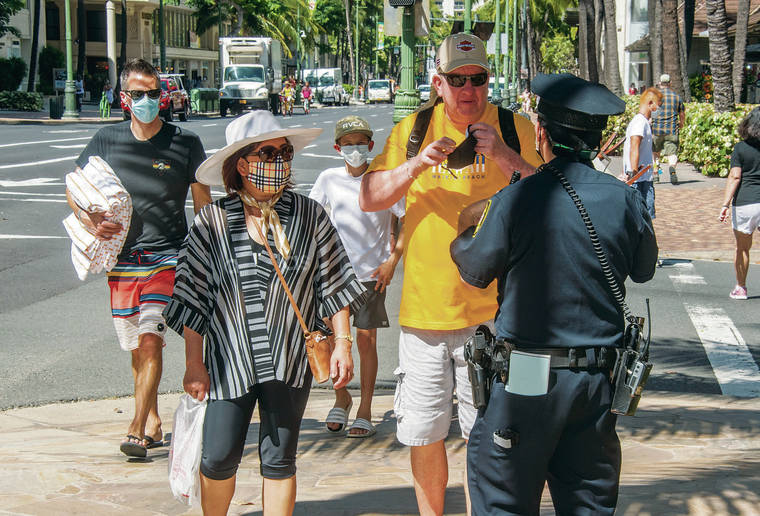
The coronavirus is taking its toll on mental health – especially for Hawaii’s young adults and lower-income residents with household incomes below $ 50,000.
About 82% of respondents to a recent Department of Health survey “have had a mental illness in the past six months,” more than half – 52% – said their symptoms started during the pandemic. At least 35% of residents with mental illness before the COVID-19 crisis reported that their symptoms worsened during the ordeal.
“People are really in survival mode now, so going from one crisis to another is bound to have a negative impact on a person’s mental health,” said Kathleen Merriam, mental health supervisor at Windward Community Mental Health Center. “We don’t even know the long-term effects of something like a pandemic on mental health.”
For most people, this is their first time going through a crisis of such magnitude, she said. With the high number of unemployed people unable to make ends meet and concerns about the health consequences of COVID-19, the crisis is overwhelming for many residents.
“If we just look at the fact that our basic needs are not being met, it will affect the mental health of an entire community,” Merriam said. “It is beyond the mental health of the individual. Entire communities also suffer. A stress is exacerbated by additional stressors. Part of the complexity is that there is an unknown – we don’t know how long to go through this. Many people wonder, ‘Will I lose my job? I paid my rent this month, but can I pay it next month? ‘People are also panicking about the future. It’s very scary. “
About 68% of the DOH survey respondents had anxiety, 61% felt lonely, 57% had depression at some point, and 33% had panic attacks within the past six months.
In addition, family income seems to reinforce those negative feelings.
More than 90% of residents of households earning less than $ 50,000 experienced one or more symptoms in the past six months. That compares to 75% of affected residents in households earning more than $ 100,000.
In addition, 93% of adults under 35 had mental illness, while 65% of seniors faced these problems, according to a survey of 445 residents from December 30 to January 11.
Residents with a child under 18 in the household were more likely to develop mental illness than those without children, and those who were more concerned about the financial impact of the pandemic were also more likely to experience mental stress and depression in the past six months , the survey showed.
Men are more affected: 58% cite a new problem as a result of the pandemic. However, women were more likely to have anxiety and panic attacks.
The poll also found that Japanese residents are particularly struggling: 68% currently have mental health problems that they did not have before.
“We are all affected by the pandemic,” Amy Curtis, chief administrator in the Department of Health’s Adult Mental Health Division, said in a press release. “This is a real problem that draws attention to the need to be vigilant in meeting the needs of our neighbors, friends, colleagues and others in the community.”
Health officials reported a new death from the coronavirus and 95 new infections, bringing the state’s total to 424 fatalities and 26,675 cases since the pandemic began.
The health department encourages people to connect with family or friends, get support from therapists, or call the DOH Hawaii CARES hotline at 800-753-6879 or text ‘ALOHA’ to 741 741 – 24 hours a day, seven days a week – for help.
In September, the hotline received a record 16,158 calls.
“Part of our challenge is how to inspire hope and a sense of the future in people so desperate. Part of that response is to make sure we have resources, ”said Merriam, adding that each county now offers COVID-19 counseling through the groups and individuals hotline.